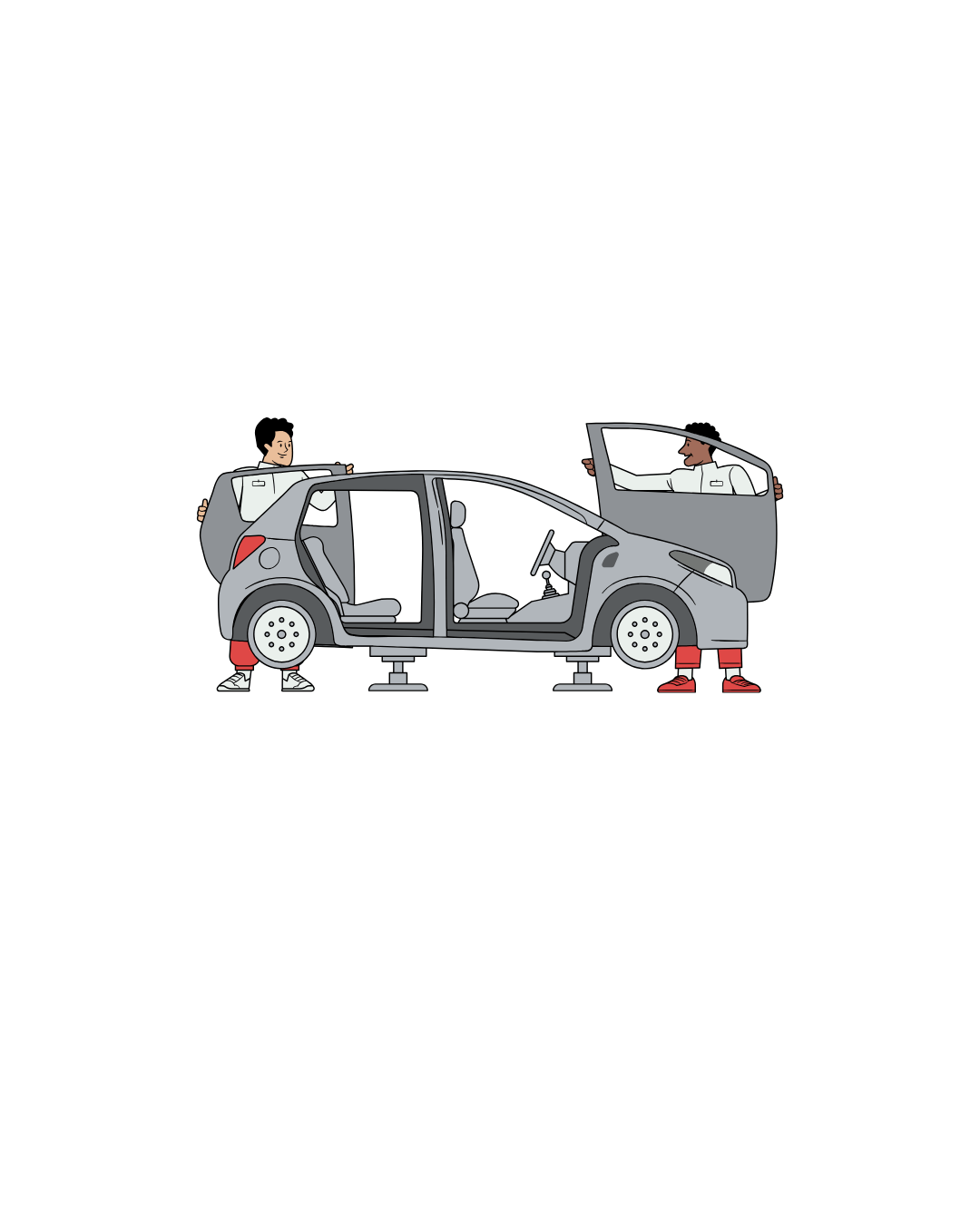Description
Curriculum for D.Voc. in Automobile
A Diploma in Vocation (D.Voc.) in Automobile focuses on the knowledge and skills required for the automobile industry, covering areas like automotive engineering, maintenance, and repair. While specific courses may vary by institution, a typical curriculum may include the following subjects:
Introduction to Automobile Engineering
Overview of automobile industry fundamentals, terminology, and the different types of vehicles.
Automotive Systems and Components
Study of various systems in automobiles, including engines, transmissions, braking systems, and electrical systems.
Engine Fundamentals
Basics of engine design and operation, including internal combustion engines, their components, and working principles.
Automotive Electrical Systems
Understanding the electrical systems in vehicles, including batteries, wiring diagrams, and electronic control units (ECUs).
Vehicle Maintenance and Repair
Techniques for routine maintenance and repair of automobiles, including servicing engines, gearboxes, and braking systems.
Automotive Diagnostics
Methods for diagnosing faults in vehicles, including the use of diagnostic tools and techniques for troubleshooting.
Automotive Safety and Regulations
Overview of safety standards, regulations, and environmental considerations in the automobile industry.
Vehicle Body Repair and Painting
Techniques for repairing bodywork, including dent removal, panel replacement, and painting.
Tire and Wheel Technology
Understanding tire construction, maintenance, and the role of wheels in vehicle performance.
Automotive HVAC Systems
Basics of heating, ventilation, and air conditioning systems in vehicles, including repair and maintenance.
Hybrid and Electric Vehicles
An introduction to hybrid and electric vehicle technology, including their operation, maintenance, and future trends in the automobile sector.
Research and Development in Automobile
Study of the latest trends in automotive technologies, including advancements in fuel efficiency, safety, and alternative fuels.
Internship/Practical Training
Hands-on training through internships or projects at automobile workshops or dealerships, providing real-life experience in automobile maintenance and repair.
Duration of the Program
The duration of a D.Voc. in Automobile is typically one to three years, with most programs designed to be completed within two years, combining classroom learning and practical training.
Career Opportunities After Completing D.Voc. in Automobile
Graduates of the D.Voc. in Automobile can explore various career paths in the automotive industry, including:
Automobile Technician
Diagnosing and repairing vehicle issues, performing routine maintenance, and ensuring vehicles meet safety standards.
Automotive Service Advisor
Acting as the liaison between customers and the service department, providing advice on maintenance and repair needs.
Engine Mechanic
Specializing in engine repairs and overhauls, ensuring optimal performance and efficiency.
Automotive Electrician
Working on electrical systems in vehicles, troubleshooting wiring issues, and repairing electrical components.
Vehicle Body Repair Technician
Focusing on repairing and repainting the exterior of vehicles, including collision repairs and restoration.
Automotive Consultant
Providing expertise and advice regarding vehicle maintenance, repairs, and industry trends to businesses or customers.
Sales Executive in Automotive Sector
Selling vehicles or automotive products, utilizing knowledge of vehicles to assist customers in making informed choices.
Parts Specialist
Managing and selling automotive parts, ensuring the right components are available for repairs and maintenance.
Automotive Quality Control Inspector
Ensuring that vehicles meet regulatory and safety standards by inspecting and testing various components and systems.
Workshop Manager
Overseeing the operations of an automotive repair shop, managing staff, and ensuring efficient workflow and customer satisfaction.
Entrepreneur
Starting a business in the automotive industry, such as a repair shop, parts supply business, or vehicle maintenance service.
Research and Development Engineer
Working in R&D roles to innovate and improve automotive technologies, focusing on efficiency, safety, and new vehicle systems.
Conclusion
A D.Voc. in Automobile provides students with practical skills and theoretical knowledge crucial for success in the automotive industry. With diverse career opportunities available, graduates are well-prepared to meet the growing demands of the sector. If you have further questions or need additional information about this program, feel free to ask!









